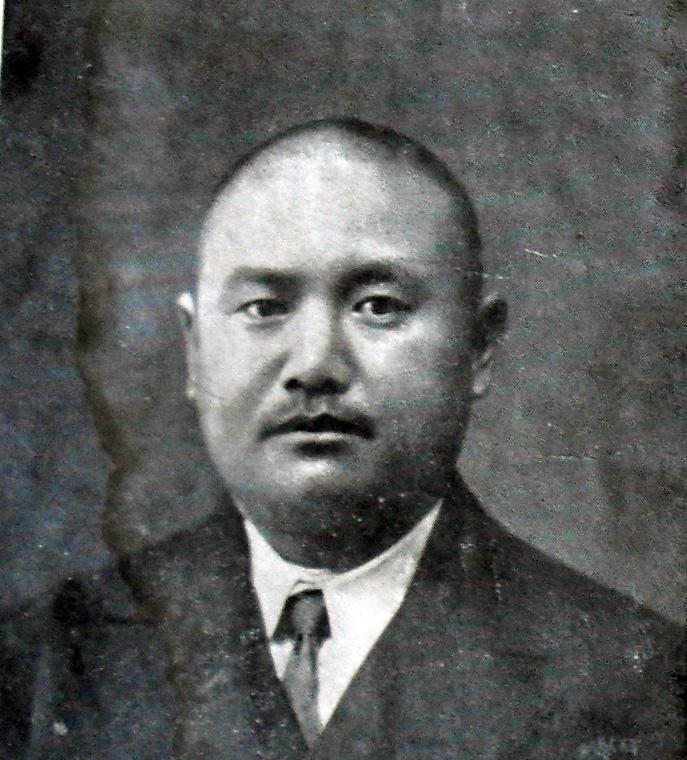In the War of Resistance Against Japanese Aggression, there were many "unsung heroes" who made great contributions to the victory of the War of Resistance, but few people still know that Men Bingyue, a famous cavalry general of the Nationalist Army, was such an "unsung hero".

Men Bingyue is a native of Dongguang County, Hebei Province, and his father, Men Shufan, is also a teacher, so Men Bingyue received a strict education from an early age, and he was admitted to the Baoding Army Primary School at the age of 12 and met Cao Kun's nephew Cao Shijie, which also laid the groundwork for his later entry into the military. Men Bingyue and Cao Shijie had a good relationship, and with the help of Cao Shijie, he successfully entered the Beiyang Army Accelerated School, and after graduating in 1908, he entered the militia as a regimental leader. However, due to the failure of the vigilante uprising, Men Bingyue was also wanted by the Beiyang government, and even tired of his family. In 1909, Men Bingyue contacted Cao Shijie again, and Cao Shijie once again gave him help to allow him to enter the First Middle School of the War Department, and Men Bingyue was grateful to him.
After that, from 1912 to 1918, in these 6 years, Men Bingyue successively studied at the Baoding Army Officer School and the Army University, and after graduation, he entered Cao Kun's 15th Mixed Brigade and served as a battalion commander, when his superior regimental commander was his old classmate Cao Shijie, and the battalion commander at the same level was also an old classmate Li Shuchun and Zhang Fanting. In 1924, Men Bingyue was promoted to the rank of brigade commander of Sun Yue's department, which was highly valued by Sun Yue, and later Sun Yue was promoted to the governor of Shaanxi Province, and Men Bingyue was tired of the warlord melee and the deceit of the officialdom, so he simply took the initiative to resign and return to his hometown. The following year, at the strong invitation of his old classmate Tang Shengzhi, Men Bingyue agreed to go out of the mountain and serve as the chief of the general staff of the 4th Group Army. Since then, Men Bingyue and Tang Shengzhi have been tied together.
In 1927, Men Bingyue became the commander of the 1st Division under the 4th Group Army, which was the most elite division of the 4th Group Army, and Tang Shengzhi was willing to hand it over to Men Bingyue, which showed that Men Bingyue could be regarded as Tang Shengzhi's right and left arm, but in 1929, Tang Shengzhi failed in the operation to overthrow Chiang Kai-shek, and Men Bingyue also became the target of Chiang Kai-shek's attack and was wanted by the Nationalist government. In 1932, Tang Shengzhi was reactivated, and Men Bingyue was able to make a comeback as a senior senator of the Kuomintang.
In 1935, Men Bingyue was ordered to form the 7th Cavalry Division (hereinafter referred to as the 7th Cavalry Division), it is worth mentioning that the 7th Cavalry Division was formed by the Central Cavalry, so it was also the Central Army, with a total of more than 6,000 people in three regiments, and its combat effectiveness was also one of the best in the cavalry unit. At that time, because every soldier was wearing a German steel helmet, the common people called it the "Iron Hat Division", and the Japanese army called it the "North Branch Iron Head Army". In 1936, the Mongol Dewang planned independence, and Men Bingyue was ordered to fight and destroy the enemy army at the Lark Temple, which was highly praised by Fu Zuoyi.
After the outbreak of the War of Resistance Against Japanese Aggression in 1937, Men Bingyue led his troops to fight fiercely with the Japanese army in Shangdu, annihilating hundreds of enemy soldiers, and was awarded the "Qingtian White Sun Medal" by Chiang Kai-shek, which was also the first "Qingtian White Sun Medal" issued by the Nationalist government. Soon after the war, Men Bingyue was promoted to commander of the 6th Cavalry Army and commander of the 7th Cavalry Division. Men Bingyue once sent people to learn from the Eighth Route Army, deeply learned guerrilla tactics, in 1939, he led the 6th Cavalry Division to raid the Japanese army several times at night, which made the Japanese army wow, the Japanese side was very annoyed, calling his unit "flea in the middle of summer". It can be seen that the Japanese army's resentment towards Men Bingyue also shows men bingyue's extraordinary military ability from the other hand.
In 1940, Men Bingyue led a cavalry force to attack all the way, taking the two cities of Linhe and Wuyuan controlled by the Japanese army, which was highly praised by the National Government, which was ready to report on this battle, but Men Bingyue was a military general after all, but did not know how to make political maneuvers, and he personally signed "Jin Xiao" to report on the "Suixi Victory" in the "Ta Kung Pao". However, this made the Kuomintang top brass, or Chiang Kai-shek, dissatisfied, who thought that Men Bingyue was too popular, so he successively laid down the "Twelve Golden Medals", withdrew him to the rear, and then dismissed him from all his posts. Since then, Men Bingyue has never been on the battlefield again, and has been working in the rear.
In 1944, Men Bingyue died of illness at the age of 54. It is a pity that such a famous cavalry general has passed away in this way.